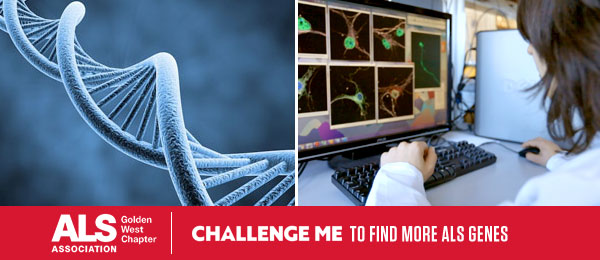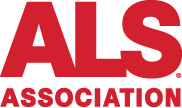CHALLENGE ME to find more ALS genes
 By John Landers, Ph.D.
By John Landers, Ph.D.
University of Massachusetts Medical School
Furthering our understanding of disease and the creation of effective therapies won’t happen in a vacuum. My peers and colleagues in the medical research community know first-hand the necessity of global collaborations that bring diverse specialties into the process of understanding complex medical mysteries such as ALS.
A few months before the ALS Ice Bucket Challenge, my colleagues and I approached The ALS Association about investing in the work of Project MinE, a global research consortium focused on understanding the genetics of ALS. Although the Association had a deep interest in advancing work to understand the genetic factors associated with ALS, resources to participate in a significant way were constrained. Genetics research is expensive, and there simply was not sufficient budget to establish a Project MinE branch in the United States.
But gallons upon gallons of ice water later, everything changed.
With the financial resources made available to The ALS Association through the Ice Bucket Challenge, my team at the University of Massachusetts Medical School have been able to contribute to the work of this global consortium, which leverages expertise in genetic sequencing, bioinformatics, pathology and other disciplines to identify genes that signal ALS.
In 2016 and 2018, just a few years after the Ice Bucket Challenge, my team and Project MinE USA helped to identify the NEK1 and KIF5A genes, which predict susceptibility to ALS. Understanding disease pathways is essential to the development of therapeutics and eventually a cure. With continued research funding from The ALS Association, we created opportunities to take these gene discoveries to the next level. We launched important studies in the lab to better understand how these genes contribute to disease and to start testing therapies ahead of clinical trials.
On the five-year anniversary of the Ice Bucket Challenge, scientists across the ALS community agree that research is years ahead of where it would have been without the funds that ALS Ice Bucket Challenge participants contributed so generously and enthusiastically. We have made such promising headway in our work to understand, predict and arrest ALS.
Effective therapies and cures for ALS are closer than ever, thanks to people like you who support the mission and vision of The ALS Association Golden West Chapter.
The Challenge Me campaign picks up where the ALS Ice Bucket Challenge left off. On behalf of our Chapter’s Board of Directors and Staff, we invite you to join us and the ALS community in challenging others to participate, advocate, and donate to fuel the search for effective treatments and cures for ALS.




